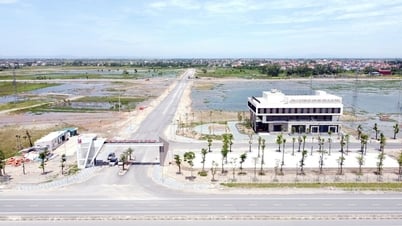(CLO) A research team at Oxford University that collaborated with AstraZeneca to create a COVID-19 vaccine is continuing its efforts to create a new vaccine to prevent the risk of a superbug strain of the plague emerging.
Historically, plague has killed an estimated 200 million people worldwide. Three of the seven recorded global pandemics have been caused by bubonic plague, an infection caused by the bacterium Yersinia pestis.

Illustration of a nurse tending to a plague patient at Grant Road Hospital Bombay India.
A 2021 trial of the vaccine in 40 healthy adults by the Oxford team showed promising results that the vaccine was safe and capable of generating an immune response in humans.
According to Professor Andrew Pollard, director of the Oxford Vaccine Group, the trial results will be published soon after the evaluation process is completed. Further clinical trials are also underway.
“There is currently no licensed vaccine for plague in the UK. Antibiotics remain the mainstay of treatment,” he said.
Government scientists have pushed for approval and large-scale production of a vaccine, especially as the disease remains endemic in some parts of the world and has “pandemic potential.”
Scientists at the Porton Down Defence Science and Technology Laboratory have highlighted the need to accelerate vaccine development “to prevent future catastrophic outbreaks of plague”. Current strains of the bacteria can become resistant to drugs, making treatment difficult.
The plague is spread by fleas, which transmit the bacteria from rodents to humans through their bites. The plague, also known as the 'Black Death', killed half of Europe's population.
Plague can manifest in three main forms: bubonic plague, pneumonic plague, and septicemic plague. Pneumonic plague can cause severe pneumonia, difficulty breathing, and coughing up blood. If not treated within 24 hours, it can lead to death. Both forms have the risk of progressing to septicemic plague, which is life-threatening.
Since the advent of antibiotics in the 20th century, concerns about plague have decreased significantly. However, antibiotic resistance is spreading globally and is expected to kill 39 million people by 2050.
Cases of drug resistance have been recorded in Madagascar and Peru, suggesting the risk of a plague "superbug" is entirely possible.
“If you get an antibiotic-resistant plague infection, treatment may be less effective and you may be sick for longer,” says Professor Tim Atkins.
“Although resistant strains have emerged, there are still other antibiotics that can be used as a back-up. Antibiotic resistance is not just a problem for plague, but is also a concern for common infections such as MRSA in the UK.”
The risk of a superbug plague outbreak remains low at present but could increase due to climate change, making animal diseases more likely to spread to humans, he added.
“Yersinia pestis is considered to be susceptible to most antibiotics, so can be treated if detected early. However, that is changing and resistance is increasing,” said Dr Simon Clarke.
Ha Trang (according to Oxford Uni, Porton Down, Sunday World)
Source: https://www.congluan.vn/cac-nha-khoa-hoc-phat-trien-vac-xin-cai-chet-den-do-lo-ngai-ve-dai-dich-tiep-theo-post329238.html





![[Photo] Prime Minister Pham Minh Chinh chairs conference on anti-smuggling, trade fraud, and counterfeit goods](https://vphoto.vietnam.vn/thumb/1200x675/vietnam/resource/IMAGE/2025/5/14/6cd67667e99e4248b7d4f587fd21e37c)



























































































Comment (0)